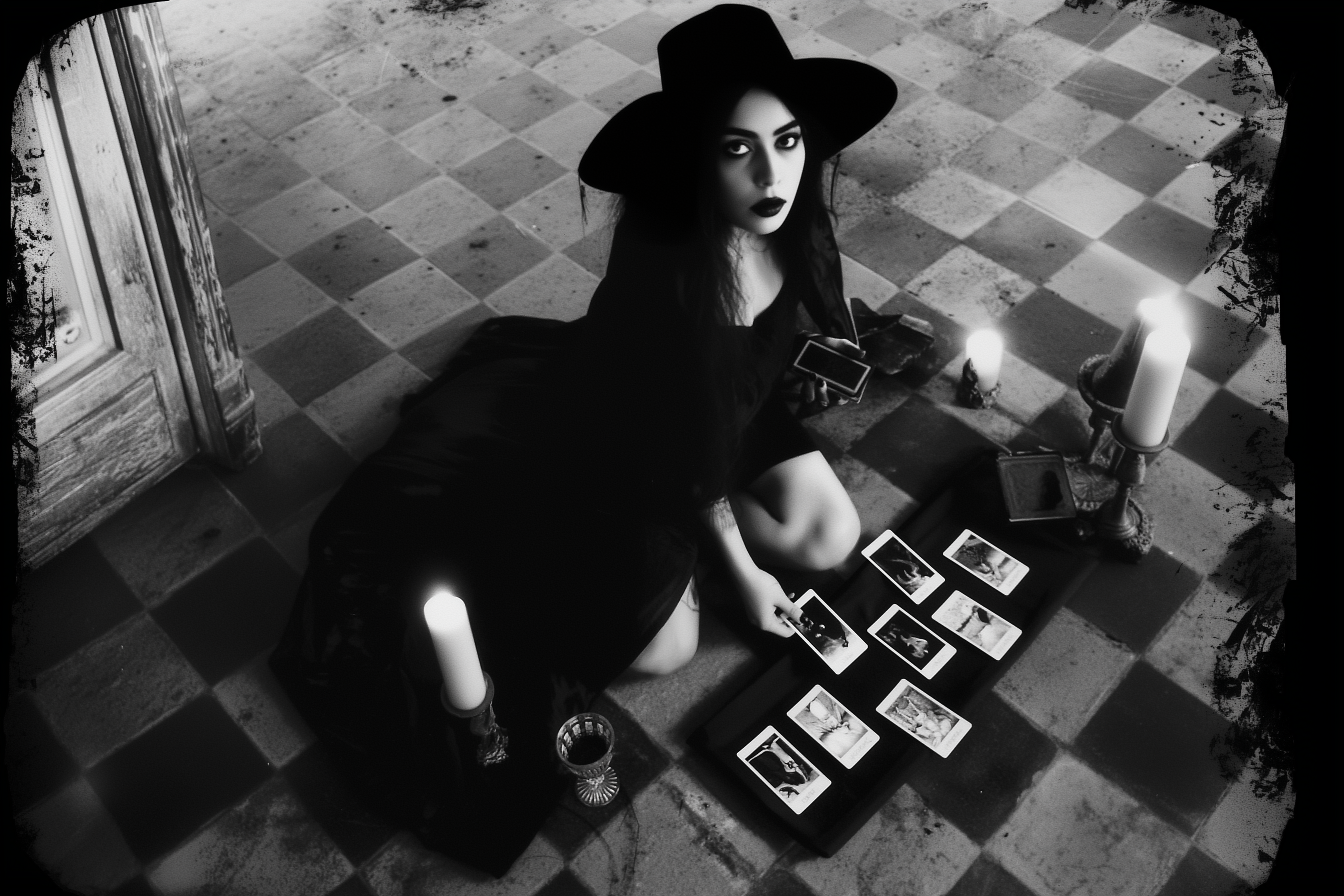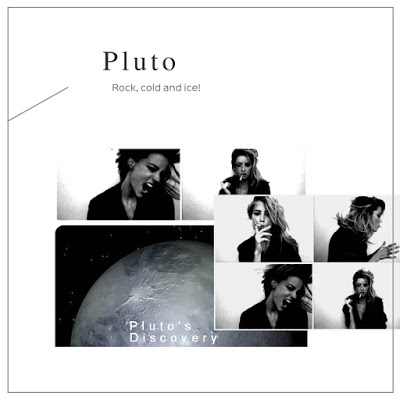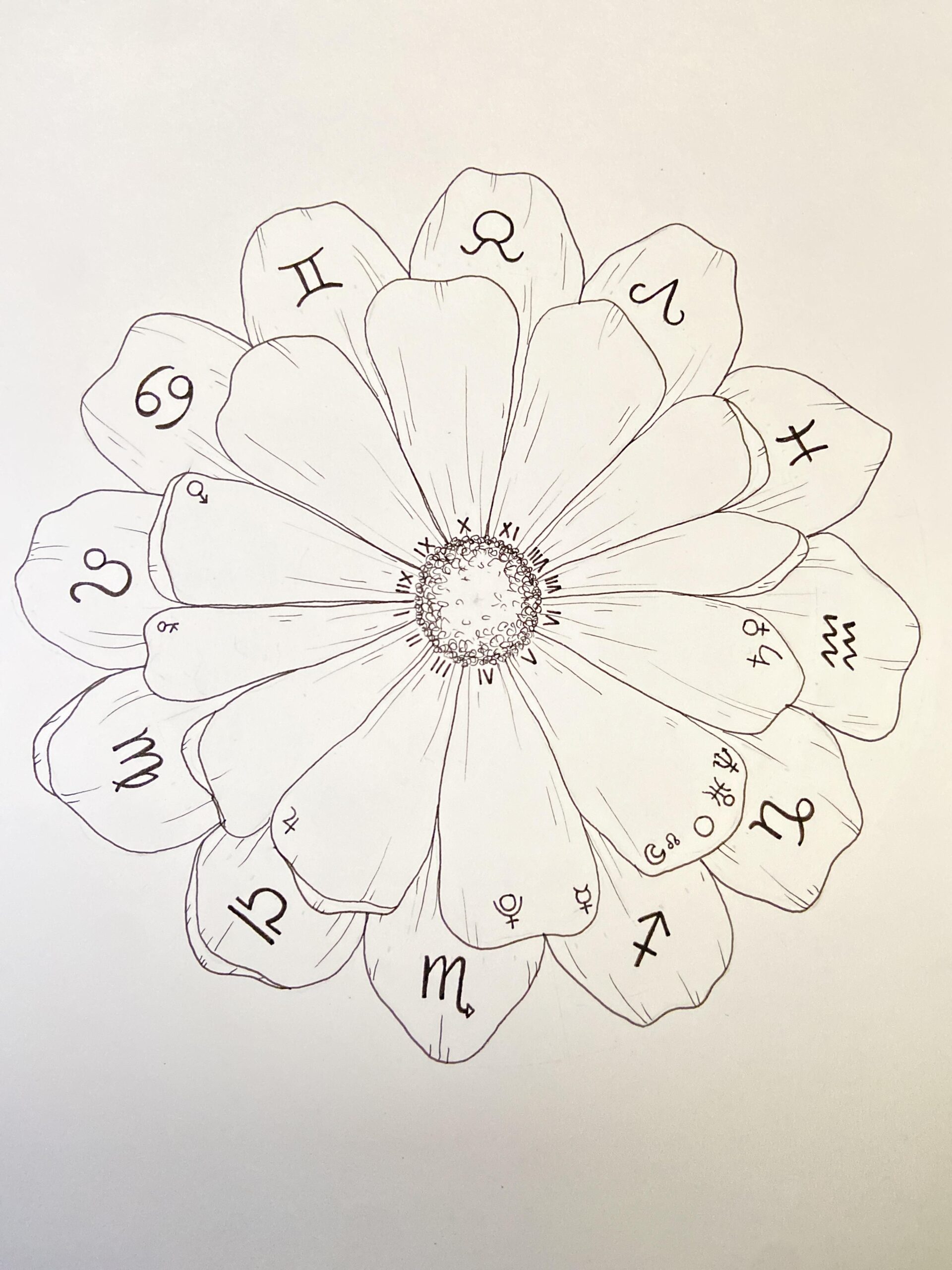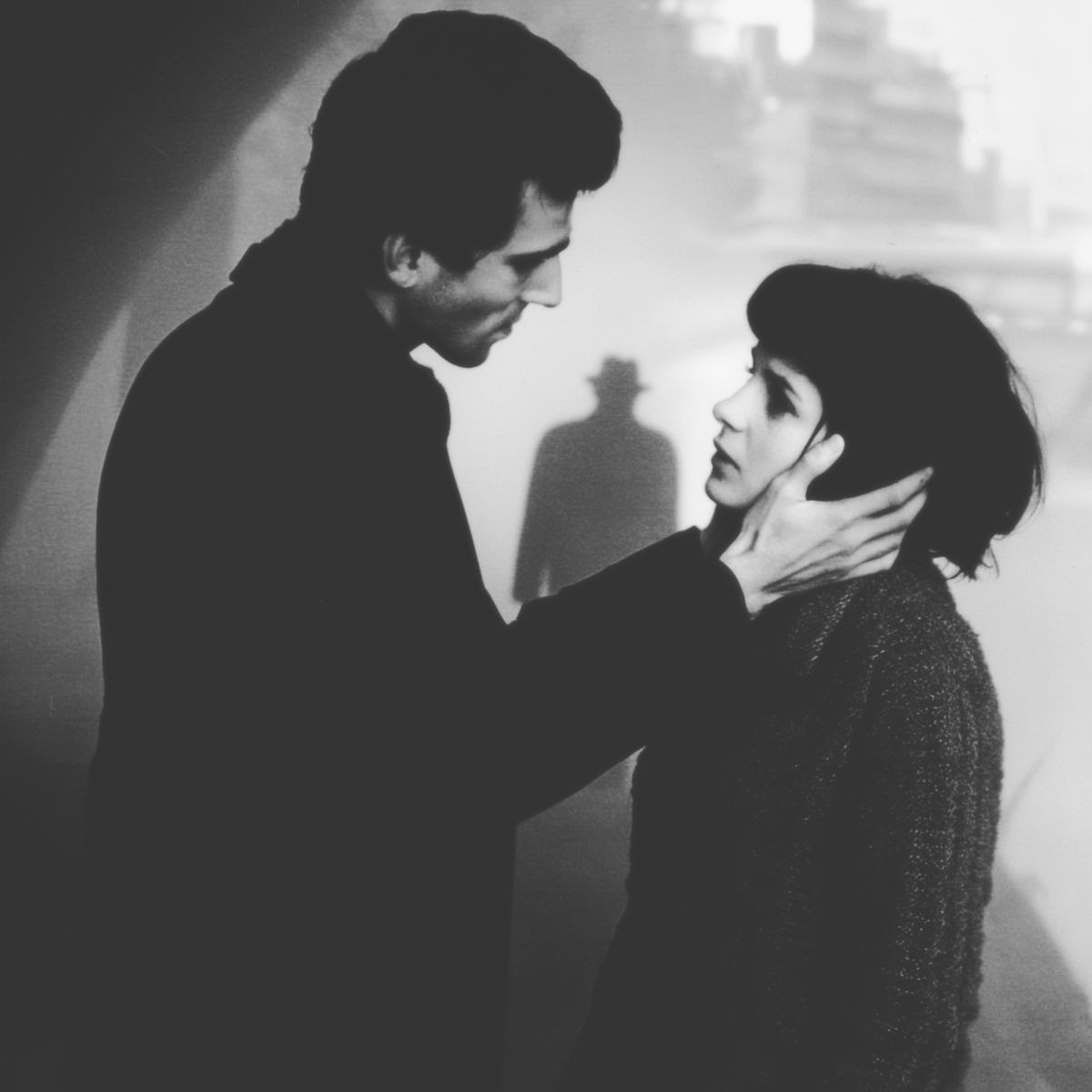
Pluto: Death, Reality, and Acceptance
 In astrology, Pluto represents the realm where the icy breath of fate chills us to the core, signifying the inevitable transformations and upheavals it brings. In this realm, you often encounter ‘deaths’—the shedding of old identities, habits, or beliefs—as they undergo a necessary rebirth. Although this process heralds a new start, it is seldom without the lingering ache of what has been lost or surrendered. People find themselves anxiously awaiting the emergence of something new from the remnants of the old. The ache of endings is juxtaposed against the charge of new beginnings. It’s the same sensation as standing on a precipice, heart pounding, knowing you have to leap but unsure of the landing. For Pluto doesn’t destroy arbitrarily; it clears the ground for something new to rise. Death is never just an ending. It’s the pause between chapters, the void before creation. In this liminal space, we are raw, exposed, and profoundly alive. The losses we endure under its influence are initiations. You cannot grow while holding on to the familiar. You have to let it go, and see what grows in its place. But of course, letting go is rarely easy. It aches, it stings, and it leaves us staring into the vast unknown.
In astrology, Pluto represents the realm where the icy breath of fate chills us to the core, signifying the inevitable transformations and upheavals it brings. In this realm, you often encounter ‘deaths’—the shedding of old identities, habits, or beliefs—as they undergo a necessary rebirth. Although this process heralds a new start, it is seldom without the lingering ache of what has been lost or surrendered. People find themselves anxiously awaiting the emergence of something new from the remnants of the old. The ache of endings is juxtaposed against the charge of new beginnings. It’s the same sensation as standing on a precipice, heart pounding, knowing you have to leap but unsure of the landing. For Pluto doesn’t destroy arbitrarily; it clears the ground for something new to rise. Death is never just an ending. It’s the pause between chapters, the void before creation. In this liminal space, we are raw, exposed, and profoundly alive. The losses we endure under its influence are initiations. You cannot grow while holding on to the familiar. You have to let it go, and see what grows in its place. But of course, letting go is rarely easy. It aches, it stings, and it leaves us staring into the vast unknown.
The interplay of power and powerlessness in Pluto’s grip is perhaps its cruelest trick—or its greatest gift. It humbles us, reminds us we’re not entirely in control. But in surrendering to that truth, we discover a deeper, quieter power within ourselves. The power to endure, to transform, to rise again—not as we were, but as something closer to our essence.
Pluto: The Catalyst for Evolution
Pluto invites—no, demands—introspection of the most fearless kind. It throws open the cellar doors of the psyche, dragging us by the scruff of the soul into those shadowy recesses we’d rather not explore. Those darker aspects of ourselves? The fears, desires, and instincts we bury under the polished veneers of civility? Pluto sits us down with them, staring unblinking until we do the same. You cannot master what you refuse to acknowledge.
And this confrontation is a full-on reckoning. Pluto’s transformations are massive upheavals, stripping away the illusion of control we cling to so desperately. And therein lies the struggle: the tug-of-war between the urge to control our lives and the fear that we never really could. This existential push-and-pull is, perhaps, the most human of all battles. But Pluto’s savagery is not without purpose. The destruction it brings is a primal force that razes the old, the stagnant, and the false, making way for new growth.
Think of Pluto’s energy as the descent into the mythical underworld. It’s the hero’s journey through dark tunnels where demons lurk and the way out is uncertain. Yet, those who brave the depths return transformed, carrying not only the scars of their battles but the treasures they found within. There’s a strange beauty in this process—a reminder that empowerment isn’t given lightly. It must be earned, wrested from the jaws of fear and uncertainty. To walk Pluto’s path is to accept the uncomfortable truth that life is not static. It shifts, bends, and sometimes shatters. But those willing to face its trials emerge not broken, but stronger, wiser, and more authentically themselves.
This planetary force ushers us into the shadowy depths of our being with no hand to hold, only a knowing gaze that says, “This is necessary.” The upheavals Pluto brings are not subtle. These are the moments that strip away the surface-level veneer of life, forcing us to see ourselves as we truly are.. The “savagery” of Pluto’s energy is no accident—it’s the intensity needed to crack open those tightly sealed doors within us, the ones labeled “Do Not Enter.” And in doing so, Pluto forces a confrontation with our innermost fears, desires, and drives—the untamed essence of who we are. Pluto’s darkness: it’s never just darkness. It’s a tunnel, and tunnels lead somewhere. It drags us into the muck, but only so we can emerge anew. There’s no growth without discomfort, no light without the shadow to frame it. Pluto’s process is the alchemy of the soul, turning the leaden weight of our struggles into the gold of empowerment. Emerging from Pluto’s trials, we carry the knowledge that we’ve survived the worst, mastered the storm within, and can now face the world with a deeper, truer sense of self.
Death and Rebirth
Here, death and rebirth are the unyielding currents that pull us under and push us forward. Pluto does not deal in half-measures. Its touch is total, dismantling the structures we cling to, exposing the vulnerable core of who we are. It’s purpose is to free us from the falsehoods and fears that keep us bound. Power and powerlessness are Pluto’s twin themes, swirling in constant opposition. At times, we feel like gods, capable of transcending anything, only to be reminded moments later of how fragile and human we are. Pluto’s challenge is to confront the depth of our vulnerabilities while learning to wield our inner strength. We are not trying to control the chaos but master ourselves within it—a process that requires both surrender and resolve.
For all its intensity, Pluto is not a force of despair. It is a force of becoming. The ashes of who we were fertilize the ground for who we are meant to be. Emerging from Pluto’s trials, we are not just survivors—we are alchemists of our own souls, reshaped and empowered by the very struggles that sought to undo us. This is Pluto’s ultimate gift: the chance to rise anew, carrying the scars of transformation as badges of honor. Though the process may feel brutal, even merciless, it is also deeply sacred. In facing our deepest truths and anxieties, we discover that we are not defined by them. We are something greater—powerful, evolving, endlessly capable of rebirth.
The Apocalypse is Coming!
Pluto is the harbinger of our own personal apocalypse—not in the fiery, catastrophic sense we so often imagine, but as the quiet, inexorable unveiling of what has always been there, waiting in the shadows. The word apocalypse comes from the Greek apokalupsis, meaning revelation, and under Pluto’s domain, this revelation is as inevitable as it is transformative. Pluto’s essence is chaos, but it’s the chaos of a seed bursting open to become a tree or a volcano reshaping the land. It’s a disruption with purpose—a dismantling of what is false or stagnant so that something deeper, more essential, can come into view. It reveals to us the hidden pattern of our lives, those unconscious patterns and buried truths that have quietly governed us. And in that unveiling lies its power.
To experience Pluto is to undergo a kind of spiritual autopsy. It demands that we peel back the layers of our identity, examining what lies beneath. What drives us? What fears do we bury? What truths do we avoid? This is not a gentle process; it’s unrelenting. It often feels like destruction because it is—but not in the sense of total annihilation. It’s a creative destruction, a clearing of the way for the emergence of something truer, something real.
The apocalyptic nature of Pluto is deeply tied to the unveiling of priorities. In its wake, the trivial falls away, leaving only what truly matters. Pluto holds a mirror to our soul and asks, “What do you see? Is this really who you are?” And once the answer is clear, there’s no going back. Pluto’s revelations are permanent, etched into the fabric of our being. This is why Pluto’s influence is so often associated with transformation and rebirth. It is the energy of the phoenix, rising from its own ashes. The agony of this process cannot be denied—it is deeply painful to confront the illusions we’ve lived by and to let go of the familiar, even when it no longer serves us. Yet, in this agony, there is profound liberation. To emerge from a Plutonian transformation is to carry a wisdom that is hard-won and unshakable.
Pluto brings endings, but it also uncovers what has been hidden, forgotten, or denied. It strips us down, but only so we can rebuild, not as who we were, but as who we were always meant to be.
The Reality of Life
To stand under Pluto’s influence is to witness the theater of life stripped to its skeletal frame. No costumes, no props, just the drama of mortality and impermanence. The death and destruction Pluto brings are not ends in themselves but catalysts—sparks that ignite a deeper understanding of who we are, what we value, and why it all matters. In the Plutonian realm, we are forged anew, shaped by the fire of our greatest challenges.
Pluto reveals truths and demands that we confront them. And these aren’t the comfortable truths, the ones you can hang on the wall and admire; they’re the truths that make your stomach drop, the ones you’d rather keep buried. Fears, desires, regrets—all of it rises to the surface under Pluto’s unrelenting gaze. And yet, in this confrontation lies true liberation. To face these truths is to reclaim the parts of ourselves we’ve denied, to emerge not as someone else, but as more fully ourselves.
The stripping away of the superficial is Pluto’s hallmark. Under its influence, the masks fall, the distractions fade, and the noise quiets. What remains is a distilled focus, a recognition of what is truly essential. Pluto says, “Look—not at who you pretend to be, but at who you are.” And in that moment, priorities shift. What once seemed important—status, possessions, petty grievances—loses its grip, making room for what truly matters: love, connection, purpose. To lose something, or even someone, under Pluto’s influence is to learn the value of what remains and to appreciate life in a new way.
The Cycles of Endings and Beginnings
Under Pluto’s rule, we come to understand that change isn’t an interruption to life; it is life. The cycles of endings and beginnings, destruction and renewal, are not incidental—they’re the engine of existence itself. Pluto’s influence is a call to action—or perhaps more accurately, a shove—toward living deliberately. When confronted with the stark impermanence of all things, we are forced to confront a choice: retreat into fear, clinging to illusions of permanence, or accept the fragility of life and commit to making each moment count. In this way, Pluto serves as both an agent of change and a catalyst for authenticity.
To live meaningfully under Pluto’s tutelage is to recognize that the beauty of life lies in its impermanence. A flower is all the more precious because it will wither; a moment is appreciated because it cannot be held. This is Pluto’s teaching: by confronting us with loss, it teaches us the value of presence. By stripping away the inessential, it reveals the value of what remains. Endings, painful as they may be, are never the final act. They are doorways, thresholds through which we must pass to discover what lies beyond. Each ending holds within it the seed of a beginning, and through these cycles, we grow—not just outwardly, but inwardly, in ways that deepen our understanding of ourselves and our place in the vast, ever-changing cycle of life.
Pluto’s ultimate lesson is one of surrender—not a passive relinquishment, but an active, courageous acceptance of life as it is: cyclical, unpredictable, and impermanent. It urges us to stop resisting change and instead see it as a partner in our evolution. In doing so, we find empowerment, realizing that while we may not control the tides, we can learn to dance with their rhythm. For in Pluto’s cycles, we find not just the end of what was, but the beginning of what can be.
The Finality of Life
What if we all carried little timers that counted down the days of our lives? Maybe the timer’s a bit dramatic. Just the date would do. It be tattooed on our foreheads like the expiration date on a milk bottle. It might be a good thing. We’d stop wasting our lives worrying about things that never happen, or collecting things that we certainly can’t take with us. We’d probably treat people better. We certainly wouldn’t be screaming at someone who had a day left. Maybe people would finally stop living like they’re immortal. Maybe we would finally learn how to live…I’ve wondered if, perhaps, at some deep, subconscious level, we really do know our time. I’ve heard stories of people spontaneously buying wills just days before an unseen calamity takes their lives. A Step of Faith, Richard Paul Evans.
The Hidden Nature of the Psyche
Pluto quietly orbits at the edge of our solar system, exerting a gravitational pull on our deepest and most primal experiences. Its domain—death, rebirth, and the hidden nature of the psyche—represents life’s mysteries and its non-negotiables. If ever there were a body to embody the phrase “resistance is futile,” it would be Pluto. Tied to Scorpio, that smoldering, magnetic sign of intensity and transformation, Pluto becomes a teacher of life’s deepest truths. Scorpio’s energies—power struggles, emotional depth, and the drive for metamorphosis—mirror Pluto’s influence perfectly. Together, they invite us to venture into life’s shadowy corners, initiating a necessary reckoning. To live fully, Pluto insists, is to embrace the darker aspects of existence with the same vigor as the light.
Pluto’s lessons are stark and unyielding, most notably the lesson of acceptance. It forces us to confront what is beyond our control—the inevitability of change, the certainty of endings, the truths we cannot rewrite. And yet, in this confrontation, we are not left powerless. Acceptance, in Pluto’s realm, is not passive resignation but an active surrender to life as it is. It is the recognition that fighting against the tides of change only deepens our suffering, while flowing with them reveals strength we didn’t know we had.
This acceptance isn’t easy. Pluto’s transformations are often accompanied by struggle—internal battles over power and control, whether with others or within ourselves. It pulls us into the depths, exposing fears, desires, and unresolved tensions we might prefer to ignore. But in surrendering to Pluto’s process, we find empowerment. By facing the inevitability of transformation head-on, we step into our own power, discovering that we are not undone by change but remade through it. Pluto’s association with death and rebirth underscores its cyclical nature. Just as the seasons turn, so do we, shedding old skins to make way for new growth.
The Inevitability of Life
Pluto’s lessons, though unwelcome at first blush, are some of the most profoundly transformative we’ll ever encounter. Pluto’s realm is the domain of inevitability, where the universal truth of death and loss stands immutable, like a shadow cast over the brightness of life. It doesn’t mince words; it shows us that some things, no matter how fiercely we wish otherwise, cannot be undone. This confrontation with the transient nature of existence is no small thing. It forces us to look directly at the impermanence of everything we hold dear—relationships, dreams, and even life itself. Such a realization is staggering, often overwhelming. Pluto’s energy doesn’t tiptoe; it crashes through the psyche, demanding we face our deepest fears about loss and change.
Yet, in this space of reckoning, Pluto also offers an invitation: What will you do with this knowledge? For when we accept that loss is inevitable and time is finite, our choices take on a sharper focus. Life no longer stretches before us as an endless, hazy promise; it becomes an opportunity, precious because of its impermanence.
Pluto’s lessons are painful precisely because they go to the heart of our humanity—our longing for permanence, for control, for the assurance that what we love will last forever. But it is in letting go of this need for certainty that we begin to live more fully. If loss is inevitable, then love becomes all the more urgent. If time is limited, then our days must be lived deliberately. Confronting Pluto’s truths doesn’t diminish life; it deepens it. It strips away the superficial and trivial, compelling us to ask the big questions: What truly matters? What will I leave behind? How will I make this existence meaningful? The answers to these questions, shaped in Pluto’s dark, transformative realm, guide us to live with greater authenticity and purpose.
Some losses are irrevocable. Some endings cannot be undone. But Pluto teaches that this is not a cause for despair; it’s a call to action. To grieve deeply is to have loved deeply. To face death is to understand life. And to accept what cannot be changed is to free ourselves to cherish what is, while we still have it. The shadow of loss becomes the backdrop against which the brilliance of existence shines all the more brightly. Pluto’s gift—wrapped though it is in pain—is one of the greatest: the wisdom to live fully in the face of the inevitable.
Pluto’s Defense Mechanism
When Pluto brings its truths about loss and impermanence into our lives, it doesn’t do so gently. It’s a harsh reminder that every bond we form carries the potential for pain, that the closer we get to someone, the greater the risk of losing them. For many, this truth becomes paralyzing. Why fall in love, the Plutonian mind asks, when it could crumble beneath you? Why risk connection when abandonment or death could one day sever it? And so, the walls go up, not out of indifference but out of fear.
This hesitancy is Pluto’s defense mechanism at work—a primal instinct to shield the heart from what feels like an inevitable blow. It’s not without merit; after all, vulnerability is risky business. But the trouble with Pluto’s brand of protection is that it often guards us so fiercely that it keeps out not only the hurt but the love, too. It isolates us in a fortress of our own making, where we are safe but ultimately alone.
The fear of abandonment, under Pluto’s influence, can become an almost existential dread. To open oneself to love is to confront the possibility of being left behind, whether by choice or by fate. This fear can make the stakes of connection feel unbearably high, deterring people from letting others get too close. Yet, paradoxically, this very fear of abandonment often deepens the yearning for connection, creating an emotional push-and-pull that feels impossible to resolve. But here’s where Pluto’s tough love comes into play: it forces us to confront not only the inevitability of loss but also the question of whether the risk of love is worth the reward. And time and again, Pluto’s deeper lesson becomes clear: while loss is real and pain is unavoidable, the richness of love—the growth it inspires, the joy it offers, the humanity it affirms—makes the risk essential.
Pluto invites us to see vulnerability not as weakness but as a strength. To love in the face of impermanence, knowing full well it could end, is one of the bravest acts we can undertake. We don’t pretend the risks don’t exist; instead, we choose to live—and love—despite them. For those wrestling with Plutonian fears, the challenge is to dismantle the walls, trusting that the pain of loss, though real, does not diminish the value of connection. On the contrary, it heightens it. Every moment of closeness, every bond shared, becomes more precious because it is fragile.
The Light and the Shadows
Death is the only certainty we are granted, the immutable horizon toward which we all travel. But what makes the journey worthwhile, what give it with purpose, is the experiences and relationships we have along the way. To live fully is to exist in both the light and the shadows, knowing they are inseparable. Pluto’s influence invites us to confront life’s biggest fears—fear of loss, of change, of our own mortality. These anxieties, when unexamined, have a way of casting long, dark shadows over our days, keeping us from truly living. But Pluto dares us to step into them, to uncover what lies beneath. It challenges us to see that the fears we avoid are often the very ones that hold the keys to our freedom.
By facing these fears head-on, by accepting that sorrow and joy are threads of the same fabric, we begin to live more authentically. Pluto’s lesson teaches us that denying life’s pain misses the truth: the pain itself gives depth to our experiences. Loss reminds us to love what we have while we have it. Change teaches us resourcefulness. And death, the ultimate inevitability, shows us the preciousness of the life we’re living now.
In confronting Pluto’s truths, we awaken to the richness of existence. We stop taking things for granted. We dive deeper into our relationships, knowing they are finite but no less meaningful for it. We savor the small joys—a laugh with a friend, the warmth of the sun, the quiet moments of stillness—because we understand their fleeting nature. And we allow ourselves to grieve when sorrow comes, knowing that even in heartbreak, there is a strange, transformative beauty. Pluto doesn’t ask us to live without fear or sorrow; it asks us to live through them, to let them deepen our connection to life. Our journey—the ups, the downs, the love, the loss— is how we honor the truth of what it means to be human. We learn to live deliberately, with an open heart and a curious spirit, no matter how fragile life may be.
A Riddle Wrapped in a Mystery Inside and Enigma
Pluto operates on a level that defies surface comprehension. It resides in the shadows, shrouded in the depths of the psyche, where the light of conscious understanding rarely ventures. Its symbolism mirrors the subterranean layers of human experience—the emotions we suppress, the desires we dare not name, the fears we refuse to face. It rules over the uncharted territories of the soul, the parts of ourselves that linger in the dark, quietly influencing our actions and shaping our lives from beneath the surface. It’s not content with polite self-reflection; it pushes us to delve deep, to excavate the parts of ourselves that are raw, vulnerable, and undeniably real.
Evolutionary astrology takes this further, suggesting that Pluto speaks to the journey of the soul itself—a journey marked by transformation, evolution, and the pursuit of truth. To walk Pluto’s path is to be unflinchingly honest with oneself, to accept that growth often comes through struggle, and to understand that true power lies not in control but in surrender. This is Pluto’s paradox: by forcing us to confront the inevitability of death and the limits of our control, it empowers us to live more authentically.
There are two kinds of observable evolution, cataclysmic and continual. Cataclysmic evolution occurs when a multitude of forces cultimate at the same time to produce a total metamorphosis of that which was. The result will appear to be sudden change, but this is not the case. The result is based upon many evolutionary forces converging together which meet the same resisting force. The resisting force simultaneously represents the present and the past. The evolutionary forces creating cataclysm represent the future as a consequence of the past. When the evolutionary force for change becomes stronger than the resisting force, the result is cataclysmic change. The relative Strength of both forces determines the intensity or magnitude of the cataclysm itself. Pluto: The Evolutionary Journey of the Soul, Volume 1
Under Pluto, no matter how we plan, how we strive, life will unfold as it will. There will be endings we can’t prevent, changes we can’t resist, and truths we can’t escape. In accepting the limits of our power over life, we discover a deeper strength—the power to transform ourselves. The darkness Pluto asks us to confront is there to strip away the inessential and reveal the core of who we truly are. It’s a journey into the unknown, but one that leads to greater self-awareness and empowerment. In Pluto’s depths, we come face to face with life’s starkest realities—and, in doing so, we uncover the extraordinary power of our own soul.
The Wheel of Fortune
Pluto’s themes can be tied to the great wheel of fortune, that archetypal symbol of life’s unpredictability. Pluto, like the wheel, spins us through life’s highs and lows, its inevitabilities and enigmas, daring us to confront what we cannot control and to grow from the experience. Its realm, the subterranean expanse of shadow and soul, demands that we face what terrifies us most: loss, impermanence, the unknown. These fears often tighten their grip when we contemplate death and the mysteries of the afterlife—a quintessential Plutonian theme. What lies beyond the final threshold? For some, it’s the fear of a blank void; for others, the terror of judgment, reincarnation, or eternal repetition. Yet Pluto teaches that the power lies not in having the answers but in having the courage to ask the questions.
The cyclical nature of life, with its relentless patterns of birth, death, and rebirth, is another of Pluto’s essential lessons. It shows us that no ending is final, just as no loss is total. Every goodbye carries the seeds of a hello; every moment of despair contains within it the faint outline of hope. This is not to diminish the pain of loss or the fear of death—both are deeply human experiences—but to suggest that they are not the end of the story.
The contemplation of death—while unsettling—offers us a certainty about life. It shifts our priorities, heightens our appreciation for the present moment, and deepens our connections to others. In pondering what comes after, we think of what is here now. The mystery of the afterlife is not something to be solved but something to be lived through, as it urges us toward courage, curiosity, and acceptance. Pluto’s teaching, wrapped as it is in the unsettling cloak of uncertainty, is to live boldly, love deeply, and transform through every twist and turn of the wheel. In doing so, we honor the cyclical nature of existence and discover that within life’s mysteries lies its greatest meaning.
The Sting of Loss
The sting of loss, the ache of betrayal, the disorientation of an existential crisis—these are not random hardships but the fiery tests of the soul’s journey. It is in the very moments that break us, we discover the strength to rebuild. What emerges is not the same as what was, but something truer, something stronger. The surface of our lives—the easy, comfortable layers—offers little of the depth Pluto demands. It compels us to dig deeper, to descend into the shadowy caverns of the psyche where our hidden vulnerabilities, untapped strengths, and buried truths reside. This descent can be terrifying, for it means facing the parts of ourselves we’ve long avoided. But it is in this darkness that the “inner jewels” are found: resourcefulness forged from pain, compassion born of suffering, and wisdom gained through self-reflection.
Pluto’s forces us to confront not only the darkness within but also the vastness beyond. Through this confrontation, we are forever changed. We come to see that the struggles we endure are not meaningless; they are the crucibles through which we become who we are meant to be. They strip away the superficial, exposing the essence of our being and urging us to step forward with renewed purpose. Pluto’s influence is, at its heart, an invitation to transformation. It asks us to look beyond the pain of the moment to the growth it makes possible. It teaches that our greatest challenges are also our greatest opportunities, and that within the darkness of the human experience lies the potential for extraordinary light.
The Hidden Aspects of the Self
The Plutonian journey—a descent into the depths that leads not to despair but to transformation, rebirth, and renewal. This transformation is not a return to what was but a leap forward, a metamorphosis into something entirely new. The act of uncovering these hidden aspects of the self is like shining a light into the forgotten corners of a vast, untamed wilderness. At first, the shadows may seem threatening, the terrain jagged and unwelcoming. But as we venture deeper, we begin to recognize the treasures concealed within: strengths we didn’t know we had, insights that illuminate our path, and a clearer understanding of our nature and place in the world. This self-awareness is hard-won but utterly transformative.
What once held us captive—old wounds, limiting beliefs, or outdated patterns—loses its grip as we integrate Pluto’s lessons and rise renewed. And yet, this process is undeniably painful. Pluto doesn’t offer gentle transformations; its work is demanding, often requiring us to let go of what we hold dear, confront the rawness of our vulnerabilities, and endure the sting of loss or betrayal. But in this very pain lies our transformation. By facing it, by moving through it rather than avoiding it, we free ourselves from the chains of the past and open the door to healing and growth.
Ultimately, Pluto’s journey is one of empowerment. It teaches us that even in the depths of despair, there is potential for growth. Even in the darkest moments, there is a spark waiting to be ignited. And when we rise—wiser, stronger, more attuned to our true selves—we find that the struggle was not in vain. We are no longer the person who descended into the depths; we are something greater, more expansive, more whole.



















 Venus-Pluto Synastry: A Love So Powerful That It Might Just Kill Them
Venus-Pluto Synastry: A Love So Powerful That It Might Just Kill Them
 The Difference: Progressions Vs Transits
The Difference: Progressions Vs Transits
 Moon Conjunct Pluto Synastry
Moon Conjunct Pluto Synastry
 The Twin Journeys of Saturn’s Returns
The Twin Journeys of Saturn’s Returns
 Mars-Pluto Synastry: Something Quite Dark and Dangerous
Mars-Pluto Synastry: Something Quite Dark and Dangerous
 Uranus Transits the 6th House
Uranus Transits the 6th House
 The Cost of Living Through the Eyes of Aries to Virgo
The Cost of Living Through the Eyes of Aries to Virgo
 Venus Trine Pluto: Dark Desires
Venus Trine Pluto: Dark Desires
 Mars Square Pluto Natal Aspect: The Unbreakable Spirit
Mars Square Pluto Natal Aspect: The Unbreakable Spirit
 Sun Square Pluto Synastry: You’ve Got That Power Over Me
Sun Square Pluto Synastry: You’ve Got That Power Over Me
 Emotional Understanding: Moon Trine Synastry Aspects Interpreted
Emotional Understanding: Moon Trine Synastry Aspects Interpreted
 Venus Trine Mars Synastry
Venus Trine Mars Synastry
 Mars in Aquarius: Sex drive
Mars in Aquarius: Sex drive
 Transiting Pluto Aspect Natal Mars: Are You Mad as Hell
Transiting Pluto Aspect Natal Mars: Are You Mad as Hell
 Saturn Conjunct Pluto Synastry
Saturn Conjunct Pluto Synastry
 Reflections on a Past Venus-Pluto Synastry Aspect
Reflections on a Past Venus-Pluto Synastry Aspect
 Sun Opposite Pluto Natal Aspect
Sun Opposite Pluto Natal Aspect
 Pluto in the 8th House: Secrets of the Soul
Pluto in the 8th House: Secrets of the Soul
 Venus in the 5th House
Venus in the 5th House
 Uranus Transits the 4th House: The Chaotic Path to Personal Inner Growth
Uranus Transits the 4th House: The Chaotic Path to Personal Inner Growth